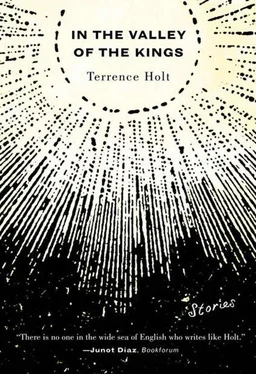A reporter specializing in science and medicine for a national news magazine was visiting Salomon’s university that week, lecturing graduate students in journalism. On the day he was scheduled to return to New York, he happened to hear of the dozen deaths that had occurred the previous night at the county hospital. Sensing a career opportunity, he filed a story, complete with an interview with Salomon, and the item ran prominently in the Health section of the following week’s issue.
The reporter, who had conducted his interviews with the hospital staff over the phone, and filed in the same way, was fortunate. Professor Salomon was not; time had in fact run out for her in more ways than one. Before she died, however, she had the satisfaction of seeing her report in print, its publication in the New England Journal spurred on by the article in Time .
In the four weeks that followed the first wave, mortality in the county was misleadingly low. The local daily never having printed the word, the contagion was spread almost exclusively among the hospital staff, in whom the disease lay latent for the month of July. At the end of the first week of August, the marks broke out over the hands, cheeks, jaws, and (most prominently) foreheads of approximately eighty-five doctors, nurses, orderlies, speech therapists and social workers, most of whom were brought in by their families in various stages of confusion, euphoria, and glossolalia.
In this second wave, observers reported yet another symptom, which followed those exhibited in the first wave in a distinct progression. Whether the onset was marked by dreamy confusion, giddiness, or fluently unintelligible speech, within twelve hours all such symptoms had lapsed into one: an uncontrollable paranoia, in which the sufferer was convinced that every object in the world, animate or inanimate, was involved in a vast conspiracy to do the patient harm.
Without exception, in this stage of the disease its victims spoke continuously for periods of up to twenty-four hours, offering elaborately detailed descriptions of the delusional system in which they were enmeshed. And without exception, the attending physicians reported that they had at times to fight off the conviction that their patients’ nightmares were real. Who can blame them? Confronted with an undeniable health emergency, swift to spread, invariably fatal, and marked at its heart by the inscrutable symbol of the word, little wonder that those who struggled to understand the disease struggled as well with fear. Unlike their patients, who had evolved an explanation for the menace within them, their doctors had no such comfort, and could only watch their patients die, and wonder helplessly if they had contracted the plague as well.
For plague, by the end of the first week of September, it had become. There is little point in going over the statistics of that hellish week: the figures beggar comprehension, and mere repetition will not suffice to make them meaningful. Certainly their import was dulled by the more immediate, personal tragedies that struck almost every household in the country at that time. And as the numbers grew to embrace other nations, other languages, their meaning became in no way more intelligible. No more than did the word, which, as it appeared in different nations, took on different forms, but had everywhere the same effect.
AT THIS TIME, little remains to report, but I would like to offer before I close two or three items that strike me as significant. The first, as I have hinted, was almost lost in the events that followed so quickly on the disease’s emergence into the public eye. But Professor Salomon’s team, in the weeks between her death and theirs, continued its research into the origins of the contagion. And though the trail had by then grown cold, the scent was not so faint that they could find in this an excuse for the failure of their investigations: the disease was untraceable, they concluded, because it had no physical cause.
And here I find one of the most pathetic effects of this disease — the kind of case in which its action was so grievous because so clearly marked. One of Salomon’s survivors, a geneticist, whom I had known slightly during our years together at the university, and who was one of the few men I have ever met who might have deserved to be called a genius, telephoned me on the day the disease took hold of him. While I kept him on the phone, in the thirty minutes before help arrived I listened as he spun out the delusion that had come on him with the word. The spectacle, if I may call it that, of a mind of his caliber reduced to raving brought me close to tears.
But I feel obligated to report what he said to me that day, in part because it was my only immediate contact with a victim of the plague. And also because one aspect of the encounter still strikes me, somehow, as significant. I believed. All the time I was speaking to him, I found myself fighting off conviction. Naturally, the feeling passed, but I still find myself, several weeks later, struggling with a sense of opportunity missed: I felt at the time, and still in my weaker moments do, as though I had come close to penetrating the mystery of the word. This is, of course, one of the effects most frequently reported by those attending on the dying.
The disease, my caller insisted, was not, properly speaking, a plague. That is to say, it was not spread by any of the infectious mechanisms. The word was not a pathogen: it was a catalyst, and the disease itself immanent in humanity at large. He had deciphered a sequence, he claimed, in the human genome, which matched, in the repetitive arrangement of its amino acids, the structure of the word. It seemed the word, processed in the temporal lobe in the presence of sufficient quantities of norepinephrine — the quantities released at levels of anxiety commonly associated with imminent bodily harm — acted as a trigger for this hitherto unnoticed gene. The gene, once stimulated, distorted the chemical function of the cerebral cortex, and the result was the familiar progression of stigmata, hallucination, convulsion, death.
It was, of course, palpable nonsense. I did not tell him so. Pity restrained me. He needed me, he went on, to spread the word. I chided him, gently, on his phraseology. His response was impatient to the point of fury. I had to help, he insisted: my own expertise in linguistics dovetailed so neatly with his findings. The two of us, he said, could broadcast the key needed to unlock a cure. I allowed him to speak as long as he needed to, until the ambulance arrived and the receiver was quietly set down. Triage, in those days, was performed upon the spot.
The man’s ravings were, of course, merely one more instance of the paranoia that marks the final hours of the victims of the plague. But, like all paranoid fantasies, his had some germ of truth in them, and it tantalized me. If we accept that the disease came into this world without phenomenal cause, another possibility remains. The disease is, I grant, born in the brain. But it is not the product of any mechanism so vulgar as genetic coding. It is purely a product of the human mind.
I offer this as a message of hope. For if the plague had its origins in the human mind, might it not be fought by the same powers that called it forth? Tabitha had been “playing with the newspapers,” her mother reported. So, this night, have I. I have before me the pages, already growing yellow, of the I — Journal in the first weeks of June. I visited the newspaper’s offices last night, forced to break in with a wrecking bar. The streets of the town were still, but for someone singing in the upper floor above a nearby shop. The words of the song were unintelligible: only the tune came through, a wandering melody, almost familiar.
I have spread them out here before me, these pages from the morgue, my fingers trembling, the paper brittle, my breath unsteady in my chest. I read the stories there: they are the old familiar ones, always the same. Family burns in fire. Two held in convenience-store murder. Ultimatum issued over genocide. War in the Middle East. Old news: these portents and omens reduced to columns of fading ink.
Читать дальше










